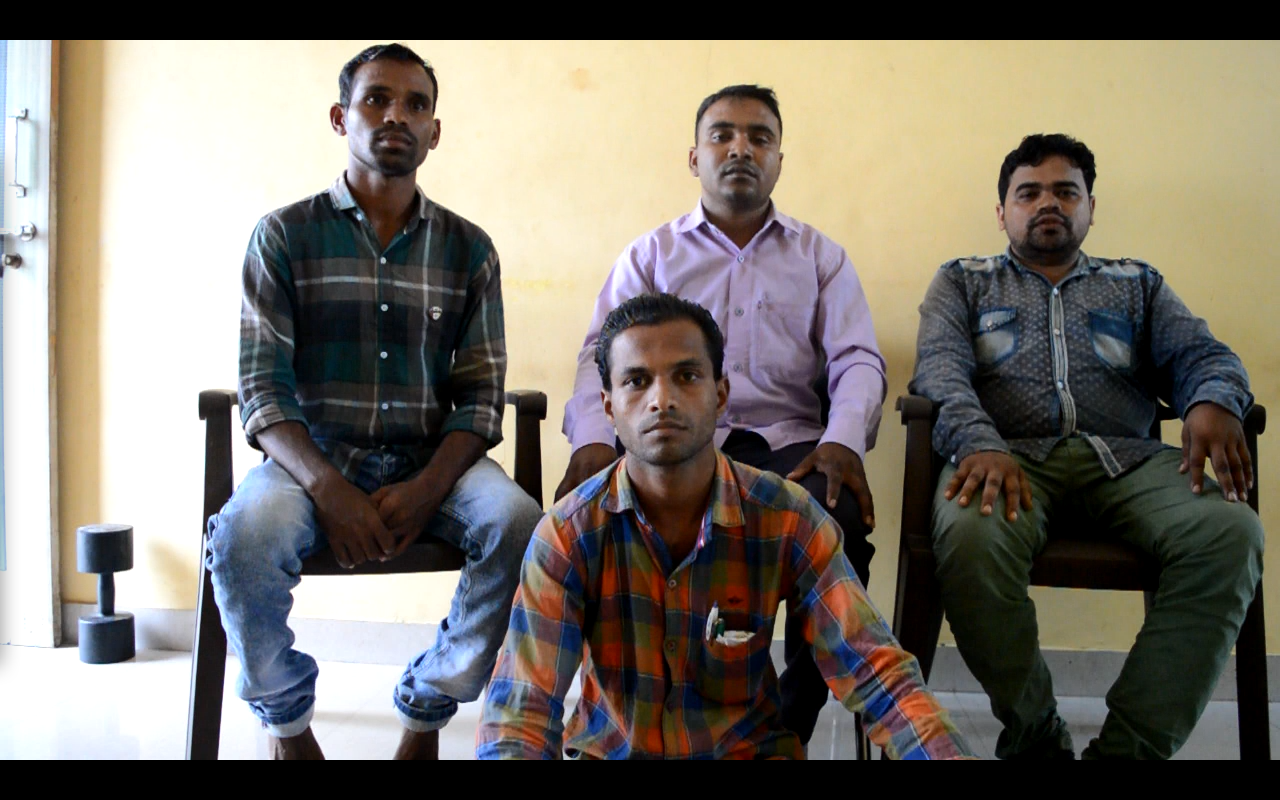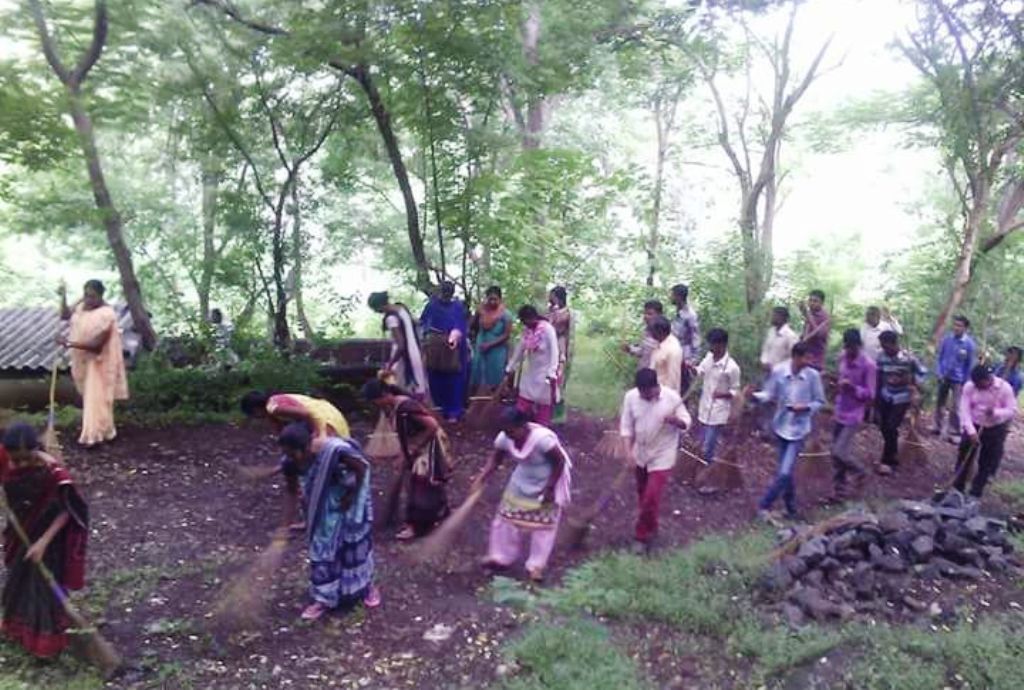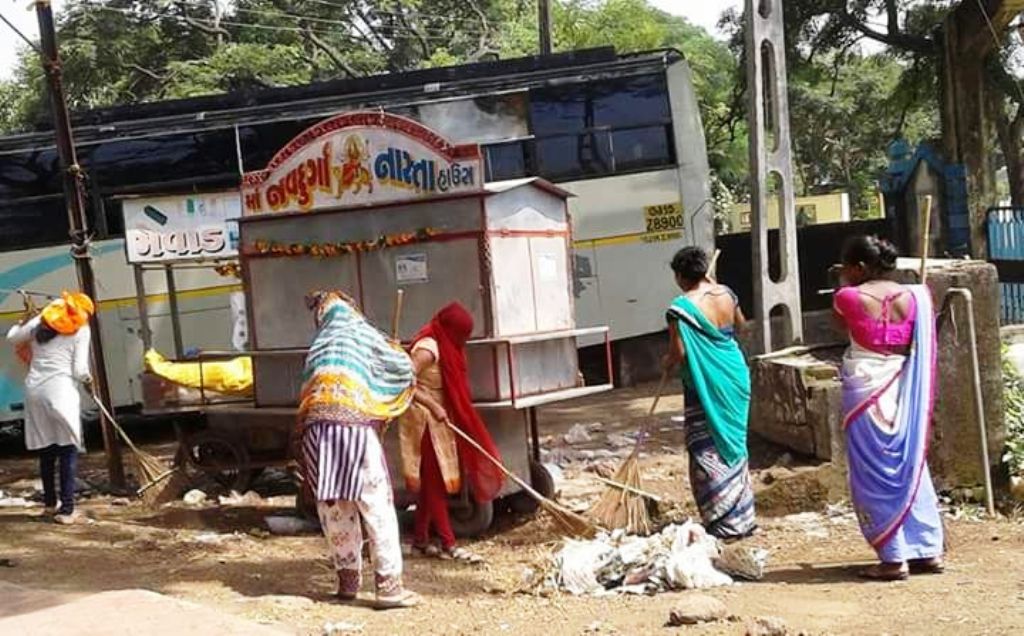Nearly three years after chit fund scam, Adivasis of Tapi remain at a loss about how to recover losses

By Amit Kumar, TwoCircles.net
Almost a year ago, just as Indians across the nation were returning from work or sitting at home on the evening of November 8, the nation was sent into chaos by the announcement of Prime Minister Narendra Modi’s The Great Indian Demonetisation scheme. It was as much as a move to remove the “black money” as a push towards cashless India.
In Gujarat, however, more than 4.5 lakh people were waiting for answers over how a multi-crore Chit Fund from Odisha managed to take over Rs 200 crores from investors across the state. The presence of Chit Funds, with their convenient schemes, was, and remains, a testimony to just how far India has to go before people start trusting and investing their money via the route of proper and the more trustworthy banking system in India, let alone ‘cashless’ schemes.
It is a question that people like Deveshbhai Gamit, Sageshbhai Gamit, Simonbhai Gamit and Pravinbhai Gamit can only ponder over now: four men who, between 2012 and early 2015, worked as agents for Oscar Chit Fund and collectively gave this company over Rs 1 crore of hard-working tribals’ money during this period. All of them also invested their life savings with the Chit Fund to show their customers that they too trusted it as much as they expected the customers to trust the company. For the past two and a half years, they have been asking the same question as for their investors: who will be held accountable, and will the money invested ever come back? If not, what do they say to their customers?
But to understand why a Chit Fund company gained such a foothold in Tapi district, we must look at a number of factors. One, banks here, at least till 2012, were still seen as out of bounds by tribals in the region. One of the agents, Deveshbhai, explained the reason to TwoCircles.net, “It is a bit like why people buy LIC Policies even though they are expensive and there is so much other insurance available,” he says. “This Chit Fund, like any other private scheme, worked on making people invest through their relatives, friends and gave the incentive of ‘adding’ people into the system,” he added. Second, while mainstream banks seemed complex to the locals, these chit funds kept things extremely simple by working on a daily-deposit scheme, says Deveshbhai. For every customer they added to the chit fund, the agents received a one-time commission of 23% of the initial deposit in case of fixed deposit. In case of daily deposit schemes, they would get 3% of the total monthly deposit they made in the Fund, the following month.
[caption id="attachment_417997" align="aligncenter" width="1024"]
Protesters organised a Swacch Bharat Abhiyan in order to raise awareness about the Chit Fund scam in 2016.[/caption]
One of the most sought-after schemes was a Fixed Deposit of Rs 10,000, which would double in a period of 78 months, translating to about 11% return per annum (compound rate of interest, calculated annually). Compare this with a bank like ICICI, which offers about 7% per annum for an FD of Rs 10,000 for a similar tenure. The rates were higher than what most company FDs would offer, and for good reason. There was never a plan to pay these people back. Not that agents or customers had any clue of the same.
A path out of poverty or a fraud?
Oscar Chit Fund was an Odisha-based company with investments in everything under the sun--from movies to colleges to infrastructure and real estate--and in 2011, they were getting letters of recommendations from MPs, MLAs to even the governor of Odisha. Quite why a governor was encouraging people to invest in a Chit Fund can be anybody’s guess: but all these gimmicks worked. By 2013, the company had opened over 80 branches across Gujarat with headquarters in Surat, about 70 km from Tapi, the district where these four agents worked.
There was, however, one more factor that worked the most in favour of this company: luring Adivasi youth who had no jobs and were not ‘tuned’ for jobs in any organised sector, let alone banks. Among these four agents, for example, no one had been able to study beyond Class 12. Chances of getting a job were remote and in fact, all four were unemployed before joining Oscar Chit Fund. The promotional activity worked well: men who had not even considered having a regular income job were invited to fancy parties in Surat on a regular basis. “Something as simple as giving us a suit worked for us. We would go to big hotels where a meal would cost over Rs 600 and it was all paid for by the company,” said another person who worked as an agent for Oscar. He refused to be named as he had successfully found another job at a local car dealership. He never told his present employee of his work experience as an agent for a now infamous Chit Fund company. “When you have been told from the beginning that an ITI course should be your aim and become a successful plumber should be your dream, a job like the one in Oscar felt unbelievable. I was earning about Rs 11,000 per annum after working there for 10 months. I worked for about three years until the company went bust and earned more than in that period than I ever did before,” he added.
[caption id="attachment_417998" align="aligncenter" width="1024"] The demands of the locals include a CB inquiry into the issue and adequate compensation for people who invested their money.[/caption]
The demands of the locals include a CB inquiry into the issue and adequate compensation for people who invested their money.[/caption]
Deveshbhai talks about a similar experience. “I was sitting at home, unemployed, in 2012 after finishing my ITI course when a man from Odisha visited our village and told us about the scheme. He had by then employed other youths from nearby villages. “The guy told us that we did not have to work full-time. We could also do other things and even promised full reimbursement for the petrol bills incurred during field trips. It all seemed like a good offer,” he said.
And for two years that Deveshbhai worked for the company, it was all going perfectly well too. In 2013, there was a case registered against the company in Odisha, but few in Gujarat knew much about it. Simobhai says that he initially started by investing a daily amount in the company for about 6 months before deciding on becoming an agent. “There was hardly any savings from farming, so in 2013 I also jumped in...the the first month, I made only Rs 530 based on one deposit I got to the company. In six months, I was making about Rs 6,000 per month. This amount may not be huge, but nevertheless, it was more than what I ever earned from farming. And it was regular,” he says. Leading up to February 2015 when the company’s true nature came out, Simonbhai had started earning about Rs 10,000 per month for the last three months. He had also made his wife an agent and the couple invested Rs 50,000 in the FD scheme. Sageshbhai, meanwhile, had invested Rs 80,000 in an FD scheme with the chit fund.
Until one day, the shutters of their office was downed on February 4, 2015. And it has remained the same ever since. Pramodbhai remembers the day well. “I was in the field, collecting the daily deposits when I got a call that the office was closed. When I arrived at the office, I was stunned to find out that the office manager, who was an Odiya, had left Vyara. I still had the money collected in the day with me, but no office to deposit it,” he says.
‘We are not thieves, but people see us that way”
The next few days were harrowing for the agents. Customers held them responsible for what had happened, and soon it became difficult for them to even step out of the home. Pramodbhai recalled the events following the closure of the chit fund office. “We came to know the same day that the head office in Surat had also shut down. I had slips of deposits, all stamped and approved, for over two years, but no end product. People naturally thought we had a role to play in it...some customers would come home early morning and threaten us. They would stay at my place for hours, swearing at us and calling us fraud. What could I do? I was doing my job like anyone else. What conspired in Odisha, I do not know to this date,” he says. He added that a few weeks later, some customers tried to take his bike from him saying that he had to pay if the company couldn’t. Fortunately for him, the police stepped in and saved him from any serious harm. “We had collected money from our relatives, our family members and told them about the schemes. Now, we could not even show our face to them,” added Sageshbhai. “Till date, my relationships with our extended family members remained strained...I wish I could help them, but the truth is I too lost money to the company,” he says.
[caption id="attachment_417999" align="aligncenter" width="1280"] From left (sitting), Simonbhai Gamit, Sageshbhai Gamit, Praveenbhai Gamit (sitting in front) Dharmeshbhai Gamit (1).[/caption]
From left (sitting), Simonbhai Gamit, Sageshbhai Gamit, Praveenbhai Gamit (sitting in front) Dharmeshbhai Gamit (1).[/caption]
In 2016, the company Chairman Prabhas Chandra Rout was arrested from Delhi, but for the locals here and lakhs of other investors across Gujarat, there has been no respite. What has shocked them, even more, is that despite repeated protests and requests, the Gujarat government has not paid heed to their demands of asking for a CBI inquiry into the matter. “Earlier this year, all the agents submitted many sacks of receipts to the police to show that they were not part of the nexus. We want an enquiry, we want people to get back their money and we want them to trust us again, but it seems the Gujarat government does not even want to acknowledge the problem we are facing,” says Simonbhai.
The end of the company also brought an end to their regular income, he says. “I went back to working on the farm...I barely make ends meet. Who will give me a job now? No one will trust an agent of a company that was a fraud. The little chance of having a career is now gone for us. Deveshbhai went back to being a part-time electrician and even tried his hand at selling Biryani in Songadh city, about 6 km from his residence. “I had to shut down that business also because people kept harassing me over the money they lost. I doubt we'll ever get a job again,” he added.
Between displacement due to dams and forced migration in search of employment, the job at the chit fund was the only thing that could have helped these four men aspire to a better life for their family. Instead, 30 months after the end of the chit fund, they are no closer to recovering any money they handed to the company. What remains is an uncertain future and a fading hope that maybe, one day the money will be returned to the investors,” says Simonbhai. “I wanted to buy a refrigerator for my family. Now, I think I will have to wait a long time before I can even consider the same,” he said. Even when an Adivasi in this region thinks he has made the cut and risen out of poverty, it seems factors much beyond his control conspire to bring him down.
